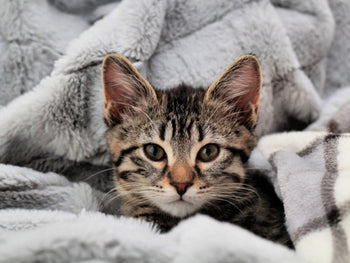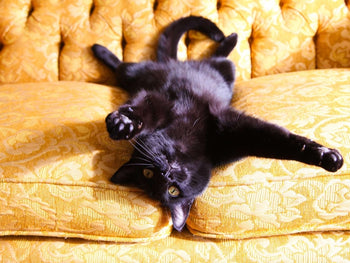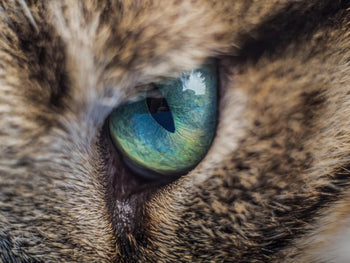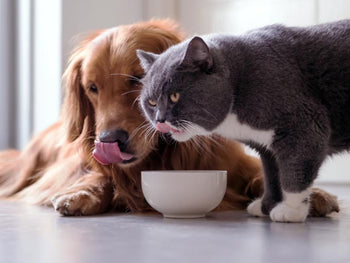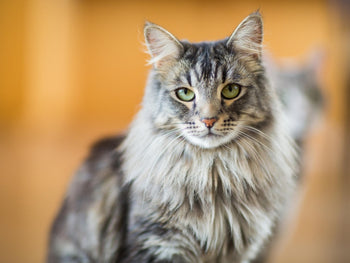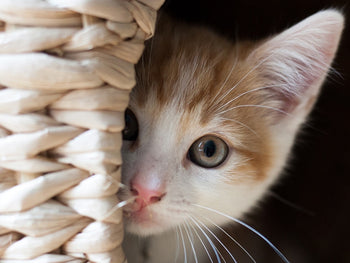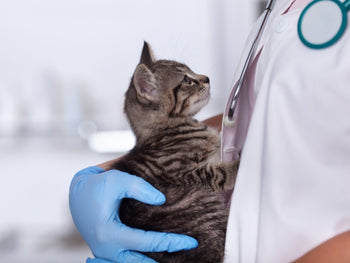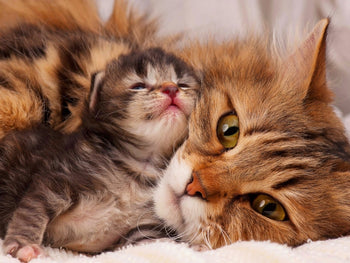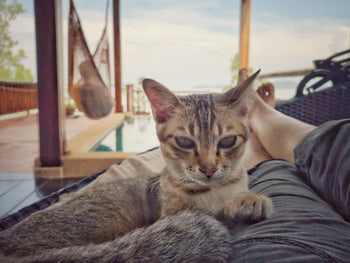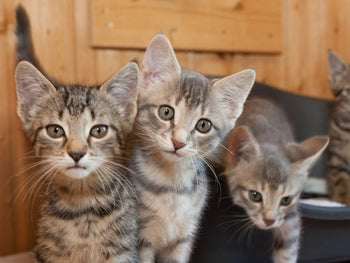
It's common knowledge among pet owners that like dogs, the felines tend to pant after considerable physical exertion. Hence, you have nothing to worry about if you notice your cat panting after playing, it should go back to normal momentary. Still, it's worth noting that panting in cats is also a symptom of several underlying illnesses that might prove life-threatening if left unaddressed. That means if your fluffy friend keeps panting profusely long after playtime is over then it could be in trouble.
So you worry about the well-being of your furball but don't know what needs to be done here? Is that is so, you come to the right place. This article is going to tell you everything cat parents must remember about panting in cats from why it happens to how to approach it.
Sometimes, It's Natural For Your Fluffy Friend To Pant

Normal panting in cats takes place from time to time and in most cases, it subsides within a few moments. Generally speaking, panting is considered to be a natural responsive in cats once they feel:
- Overheated: The average felines don't exactly tolerate heat well as they could only sweat through foot pads to cool down. That is why lots of cats use panting as a supplement, especially in high temperatures.
- Excited: Young, energetic kittens might pant like puppies for a short period of time after playing because they feel excited.
- Scared, Stressed And Anxious: Being jumpy creatures, cats would be frightened by virtually everything in the house from unfamiliar house guests to strange sounds. Once panic, a couple of cats start to pant until they eventually manage to relax.
Overall, if you know for certain what is going on with your kitty then you should be able to determine if it's panting normally.
Check us out for various astonishing cat tips & facts!
Abnormal Panting In Cats: Causes

All things considered, natural panting in cats often lasts for just a couple of minutes. So if your furball is panting for quite some time then you could assume that it's having issues. While different cats indeed have different constitutions, it's strongly recommended that you consider the following possibilities if you see your cat panting after playing.
-
Respiratory Infections
Similar to humans, cats experience respiratory infections now and then. Obviously, it's difficult for the felines to breathe properly if mucus fills the airways so they have to pant. On the bright side, pets with respiratory infections only require basic treatments to get better. The causes of infections tend to be viral in nature but if secondary bacterial infections occur, antibiotics would be needed. Most of the time, humidifiers should help loosen the mucus and facilitate nasal breathing.
-
Heartworm Associated Respiratory Disease (HARD)
Compared to dogs, cats rarely contract HARD as your fluffy friend is atypical hose for the parasite and most heartworms in the felines don't survive to the adult stage. Still, even immature worms could create significant troubles to the pets so people must keep an eye out for them. Cats with HARD often have symptoms like asthma-like attacks, lack of appetite, weight loss,... As there is no approved drug therapy for heartworm infection in cats, treatments focus on reducing inflammation and addressing symptoms.
-
Feline Asthma
To put it plainly, feline asthma is a condition in which the pets have a hard time breathing due to recurring constrictions of the airways. Such constrictions might happen without apparent reason but they tend to be the results of allergic reactions to certain allergens such as pollens, sprays, smokes,... Symptoms of asthma in cats include panting, wheezing, coughing, increased respiratory rate and so on. In terms of treatment, veterinarians routinely use corticosteroids and bronchodilators.
-
Congestive Heart Failure
Once the heart of a cat fails to get enough blood to its body, fluids back up into the lungs and cause congestive heart failure. Cat with the issue don't breathe like normal felines, instead, they breathe through an open mouth and pant occasionally. In addition, most affected pets have reduced mobility as they must stop to rest and recuperate after walking short distances. To treat congestive heart failure in cats, it's necessary to get rid of the fluids, dilate the blood vessels using medications and make the heart contract with more force.
What Needs To Be Done Here

All in all, if you see your cat panting after playing and suspect that something is wrong then you must schedule an appointment at the local veterinary clinics at once. Compared to ordinary cat parents, veterinarians have superior means and knowledge to deduce what is going on with the felines. For most of the time, the vets would check the lung and the heart of your furball for abnormal signs. After the cause of the panting is properly identified, veterinarians should give you a summary regarding the situation as well as suggestions regarding treatment regimes.
Keeping Cats In Good Heath: Recommendations For Novice Pet Owners

The felines don't tell humans what they feel so it's up to you to look after your fluffy friend. Want to make sure that your kitty is in top shape? If that happens to be the case then you should consider implementing these precautions.
- Keep Watch Over The Temperatures: Cats tend to be sensitive to temperature so you need to take your furball into account while adjusting the thermostat. Since cats only pant if they feel overheated, give your kitty a cool blanket to lie on if you catch your cat panting after playing. Additionally, turn on the fan to increase air circulation and get your cat to cool down faster.
- Put Together A Deworming Schedule: While it's quite troublesome to tackle heartworm its associated disease in cats, pet owners could keep the parasite out of the felines relatively easy. All you have to do is to set up a deworming schedule for your kitty and stick to it.
- Give The Pet Periodic Checkups: Every now and then, you should get your fluffy friend to the vets for examination. That would allow you to detect underlying issues early and take care of them before they get worse.
Read more Cat's Health Guides and find fun stuffs on Cattybox!
